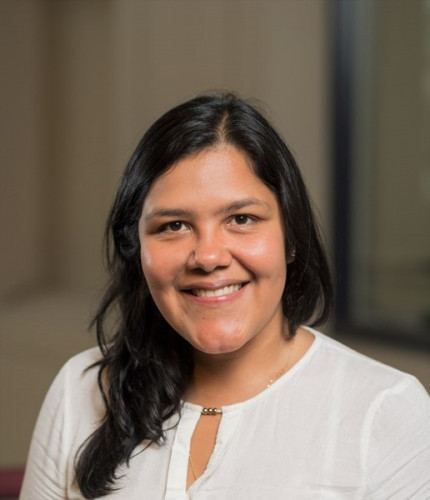The Project
The Latinx Student Psychological Association (LSPA) is a graduate student organization affiliated with the Department of Psychology at the University of Michigan. We were awarded a Library Mini Grant to support our write-ins during the Winter 2020 semester. Our write-ins have strengthened our strategies for collaboration and have resulted in a supportive relationship with library staff, and specifically with Jesus Espinoza, a relationship we hope will continue in the future.
Although Latinx students are underrepresented in graduate education, we have consolidated a supportive, prolific, and creative community aiming to produce cutting-edge science in Psychology. Our members’ research informs a variety of applications in social work, education, developmental sciences, and biopsychology, among others. Motivated by the purpose of supporting our engagement with academic challenges, we started holding writing sessions that, in the past, have proven to boost our members’ productivity and sense of belonging in academia.
The LSPA executive board, which is made up of students at all levels in the PhD program, began holding writing sessions toward the end of Winter 2018 semester. We began by programming monthly reunions, in a quiet space, and the LSPA members brought their ideas, their sense of collaboration, and discipline. Since we started holding our writing groups, we realized how important is for our community to share a space, to keep us company while we engage in writing, to have a colleague nearby and ask for support when we are stuck, or to share when we are excited by figuring out ways to move our research forward. By the end of 2019, we applied to the library mini grant to continue supporting our academic development by making our writing sessions a reoccurring event throughout the academic year, aiming to include productivity workshops as well.
The executive board discussed the idea of incorporating write-ins more intentionally, and we decided to go to the organization with the idea about applying for funding that could help us hold these write-in sessions. We asked LSPA members about the type of support that would benefit us as scholars, and as community. As an underrepresented community in academia, most of our members are first-generation college students and first-generation graduate students. Thus, accessing academic resources and engaging with productivity tools are skills that we must develop and strengthen during our graduate education. We found that most of our members were interested in receiving support for automatizing and optimizing processes, like as using searching and reference managers, increasing familiarity with data tools and specialized software, and consolidating a collaborative relationship with our library mentor.
With the support of the library mini grant we held our monthly write-ins and worked together creating a systematic plan to facilitate research resources to our members. In many Latinx cultures, sharing a space and a meal is a cultural value that brings us closer. Moving from our hometowns into institutions of higher education, we often miss that sense of community that is a fundamental aspect of our culture. Our monthly write-ins provided LSPA members with a comfortable and familiar space to work on their research alongside other Latinx members.
As such, we set aside some of the resources of our grant to provide lunch for our members during our whole-day writing meetings, and we are examining what resources we might need to offer our members to keep engaged and productive after suspending our in-person meetings in March.
Although we temporally suspended our write-ins while following physical distancing guidelines currently in place, we trust that we will find ways to keep supporting each other’s work. We plan to continue using the support of the library mini grant to implement a collaborative accountability system to help members navigate defined milestones, such as scholarly papers, research proposals, and job-market materials. Additionally, because our research interests are diverse, we are working on creating opportunities for academic collaboration and long-term alliances. The in-person nature of our meetings has been temporally challenged by the COVID-19 pandemic, but our community continues to be strong and resilient. We plan to adapt our meetings to the new realities we will face during the summer and fall terms, and we expect to continue engaging in a productive relationship with our library mentor to find ways of keeping us focused in our productivity.

Paola Andrea Guerrero Rosada is a Doctoral Candidate in the Combined Program in Education and Psychology at the University of Michigan